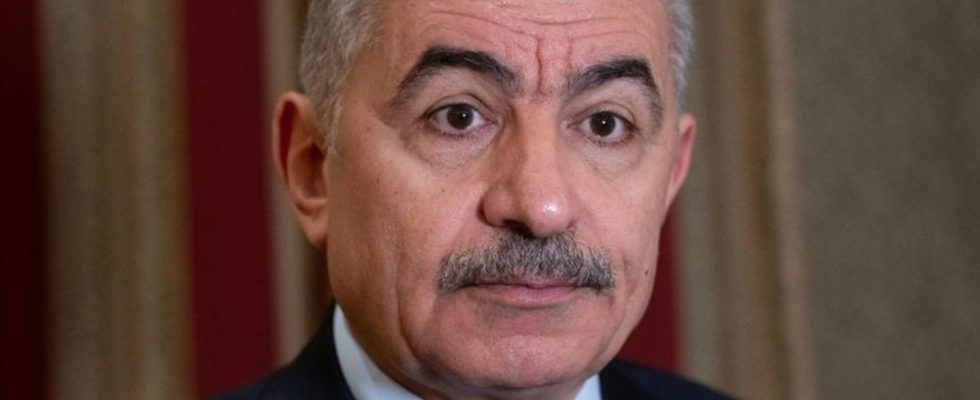War in the Middle East
Palestinian head of government wants Marshall Plan for Gaza
Palestinian Prime Minister Mohammed Shtaje has virtually no control over the Gaza Strip. photo
© Sven Hoppe/dpa
The Palestinian leadership is demanding that Israel immediately allow the population of the Gaza Strip to return to their homes. International help is needed for reconstruction.
“We know from satellite images that 45 percent of the Gaza Strip has been destroyed. That means 281,000 housing units have been completely or partially destroyed.” A repair could sometimes be possible in weeks or months. Shtaje: “That means we need a lot of money for this.” An investigation is underway with the United Nations into how the greatest need can be met.
The head of government, who sits with his autonomous authority in the West Bank and has no de facto control over the Gaza Strip, which is dominated by the Islamist Palestinian organization Hamas, once again warned Israel against driving the Palestinians who have fled to the south of the coastal strip into Egypt with a military offensive. Instead, Israel should let people return to their homes. To do this, Israel must allow aid deliveries to the northern Gaza Strip and turn on water and electricity again. “Israel may not want to let people back into their homes. But we talked about that in Munich at all meetings with Washington, with Germany, Great Britain and other countries,” he said.
Fatah and Hamas have recently been bitter rivals
Along with the war in Ukraine, the situation in the Middle East was a main topic at the Munich Security Conference, where heads of government, ministers, military experts and scientists discussed with international organizations for three days until Sunday. It was always about Russia.
At the invitation of the Russian government, representatives of the various Palestinian groups will meet again for the first time in Moscow in February. The Fatah people, who dominate the West Bank, will meet representatives of Hamas, which attacked Israel from the Gaza Strip on October 7th and whose atrocities marked the beginning of the escalation of violence. Both organizations have been bitter rivals in recent years.
“Well, the Russians have decided to invite all Palestinian factions,” Shtaje said. “And our hope is: we need unity, and Hamas should be part of the Palestinian political arena.” The aim is to commit them to common goals under the umbrella of the Palestine Liberation Organization (PLO). “The instructions for our delegation are clear. We come with an open mind. Our hearts are open. We have to end this division according to clear rules of the game,” said Fatah man Shtaje.
West does not want to cooperate with Hamas
However, it is clear that there are many in Western governments who do not accept Hamas as a partner after the attacks on Israel, the abductions, and the reports of murder and rape. Shtaje, on the other hand, assumes that the international community could, as part of a broader solution, agree to a scenario in which Hamas still has a role. Shtaje: “We have to settle the entire Palestinian issue in the West Bank, in Jerusalem and in Gaza for ourselves in order to end the conflict.” The aim is to ensure that an attack like the one on October 7th does not happen again. Discussions were also ongoing with those from Qatar and Egypt about the release of the Israelis abducted by Hamas.
The situation in Rafah, in the southern Gaza Strip on the border with Egypt, where many Palestinians have sought protection, is catastrophic. “No food, no water, no electricity, food supplies are very limited. Only eight percent of the needs come to the Gaza Strip via Rafah,” said Shtaje. The people there are scared and “extremely angry”.

